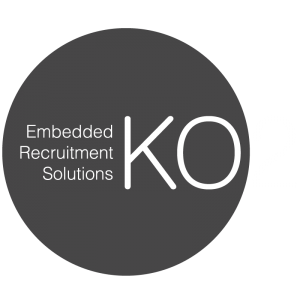The role of lead software engineer is a key part of successful software development teams. It’s a team leader role that also involves plenty of practical work, which is ideal for engineering candidates looking to take on more responsibility but who don’t want to leave their days of technical software development behind them.
If you’re an employer that hires software developers, having a lead engineer in your team can be a great way to improve the success and efficiency of projects as well as giving employees the chance to learn new skills from an experienced team member. As an employee, the role of lead software engineer is a great step up from a general software development role and the lead software engineer responsibilities you take on can be a significant career move.
This article includes a summary of ‘What is a lead software engineer?’ and a comprehensive lead software engineer job description, a breakdown of what candidates will do in the role, guidance on the best way to progress to a role like this, and some of the key lead software engineer skills that potential employers will be looking out for.
What is a Lead Software Engineer?

A lead software engineer may also be referred to as a technical lead, and is a role that involves being responsible for some or all of the software development projects taking place within a company. They’re a kind of team leader who takes charge of the direction of the project and will be in charge of rectifying mistakes and fixing problems.
Lead software engineer jobs require a high level of software development knowledge and experience, as those in the role are responsible for making decisions that determine the direction of a project and the actions that need to be taken to finish a deliverable. Loftware engineer lead responsibilities may require you to get involved in practical aspects of the software project as well as monitoring progress, running tests and liaising with clients and stakeholders.
Software engineers work in a range of industries, and can be in charge of anything from a handful of other developers to an entire software engineering department. The role of ‘lead’ may only be a temporary position for the duration of a single project, or a lead software developer may be responsible for every project their company undertakes.
Below are two of the more specialised roles that a lead software engineer can work in.
Lead Software Security Engineer
A lead software security engineer specialises in developing software that is secure or that protects the data processed within it. They will have knowledge and experience in a range of cyber security techniques and approaches, advise on software design, run tests to determine the security of new software, and respond to any breaches of software security.
Lead Software Test Engineer
A lead software test engineer is the engineer in charge of testing applications and software before they are released. They will often be very experienced and may have junior test engineers working with them, and their responsibilities will involve deciding on appropriate testing procedures for software and ensuring that new applications meet relevant quality and security standards.
What Does a Lead Software Engineer Do?
The specifics of lead software engineer job responsibilities will vary between roles depending on the kind of software that is being developed and the system or device that it will be integrated with. Below are some of the more common lead software developer duties and responsibilities that you may be required to do in the role.
- Receiving and understanding technical briefs delivered by clients or senior management
- Outlining a plan for software development, setting deadlines, delegating tasks and identifying markers of success
- Coordinating a team of software developers and engineers to complete all necessary tasks within a project
- Undertaking practical software development work as part of their team
- Researching relevant technical requirements and ensuring that deliverables meet these requirements
- Troubleshooting and identifying solutions to problems
- Overseeing software testing procedures
- Responding to any errors or faults identified during software testing
- Recording development methods and procedures
- Delivering updates on project progress
- Mentoring junior team members
How to Become a Lead Software Engineer

The majority of lead software engineers begin their careers as software developers. In terms of education, to start on this career path you usually need to study subjects such as IT, Computer Science, Maths or even Physics at A Level or an equivalent level.
If you decide to go to university, a degree in Computer Science, Electronics Engineering, Maths or Physics can help you get into a job in software development or engineering when you graduate. If you study for an engineering degree it is often recommended that you stay for a Masters qualification, but this is not necessary to get a good job.
You can also pursue a career as a technical lead software engineer if you study for a Higher National Diploma in a computer-related subject that gives you similar technical skills and experience.
As a lead software engineer tends to be more of a senior role, you will likely begin your career as a junior software engineer or developer. Your chances of being promoted will be much higher if you take on as many opportunities as you can to demonstrate leadership and responsibility, gaining experience managing others and making decisions as a team leader.
Employers looking for new lead software engineers will seek candidates with experience developing and updating software and leading teams of other developers and engineers. The role of lead engineer may be a temporary position as part of a specific project or it might be a full-time position in a software development department.
Lead Software Engineer Skills

Whether you’re applying for a role as a lead software engineer or looking to hire a candidate to fill the position and need to write a software lead job description, understanding the most valuable skills to have in the role can be really useful. Below are 11 key skills that will benefit you during a range of lead software engineer job responsibilities.
Technical Coding and Programming
The most important skill that you will need in many of the lead software engineer roles and responsibilities is technical programming abilities. Whilst this is a leadership role, a technical lead is often still very involved in the practical side of the project they are responsible for, and needs to be proficient in multiple programming languages as well as having experience with a range of IDEs.
It’s also very useful for a lead software engineer to have experience debugging software, as they are often in charge of leading the way when it comes to fixing problems in the project they are responsible for.
Problem Solving
A large amount of software development involves problem-solving, so this is an essential skill in lead software engineer jobs. The ability to look at a problem from different angles, propose solutions and estimate their outcomes, and then implement suggestions until a problem is solved will be incredibly valuable in all kinds of software engineering projects, and employers will be looking for practical examples of where these skills have been used.
Communication
Lead software engineers primarily work in a team, which means that communication is a key part of their day-to-day role. They will have to deliver instructions to their team members and explain requirements and expectations, as well as being able to motivate others and provide help and support where necessary.
As a project leader, there will also be instances where a lead engineer has to communicate with clients, shareholders, or their managers. Confident and clear communication is important here as well, particularly when delivering a finished product or system.
Teamwork
As previously stated, a lead software developer or engineer tends to take quite a hands-on role in the team they are in charge of. They will need to be able to work collaboratively with their teammates as well as lead them when the situation requires it, taking on work and understanding who is best equipped to complete certain tasks.
Troubleshooting and Debugging
A key part of software development is troubleshooting and debugging the software being created until it runs smoothly. A lead software engineer not only needs experience doing this so that they can help and lead others through the process, but they should also have a good knowledge of the most effective debugging techniques and common issues with kinds of software that will mean that holdups in these situations are minimal.
Multitasking
The majority of team leader positions involve multitasking, and the role of lead software engineer is no different. At any one point, they may be required to work on a task themselves, help other members of their team with work, keep an eye on the overall progress of the project and deliver updates to other members of their company, which requires very competent multitasking skills.
Attention to Detail
When you’re developing software and writing code, attention to detail is very important. Even a small mistake can have a huge impact on how well a program or application runs, and small problems can hold up the entire project if they are not quickly identified and rectified. Having good attention to detail not only means you’re less likely to make these mistakes in the first place, but also that you’ll find it easy to spot them and correct them.
Leadership
Leadership is the skill that divides general software developers from lead software engineers. The ability to take charge of others, confidently make decisions, hold yourself accountable for the progress and quality of a project, motivate the people you work with and organise a team will set you apart from other candidates and help you to succeed in the role. Some of these skills involved in leadership may come naturally, but many of them will grow from having experience in other leadership roles.
Analysis
Finally, a valuable skill for a lead software engineer is analysis. From looking closely at the software your team has created to assess the progress and efficiency of the entire project, a critical eye is very useful in the role, along with the ability to identify patterns and pull out conclusions from whatever you are investigating.
If you’d like to read more about some of the most valuable skills that a software engineer should have, check out this post on our blog.
Summary
Lead software engineer jobs are common in the electronics and embedded systems industry where teams frequently work on software development projects and require a leader to guide their progress and act as a touchpoint between them and the client. It’s a great step up from a junior or general developer or engineer role and offers an opportunity to lead, mentor, share your specialist knowledge and influence the direction of a project.
If you’re an employer in the embedded systems industry that is looking for specialist help with hiring lead software engineers, or an engineer looking for a leadership role such as this one, get in touch and find out more about how our recruitment agency can help you.







